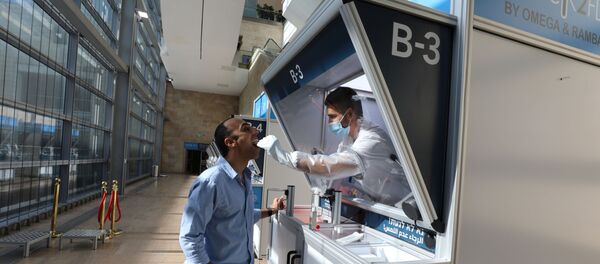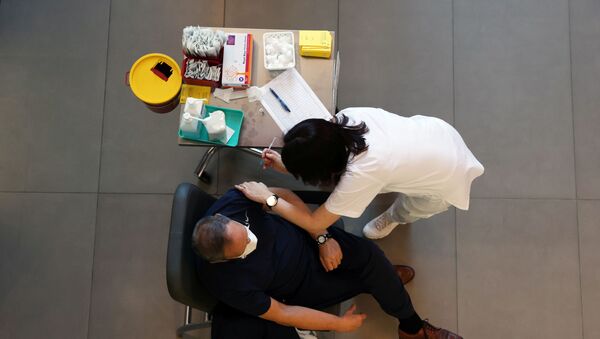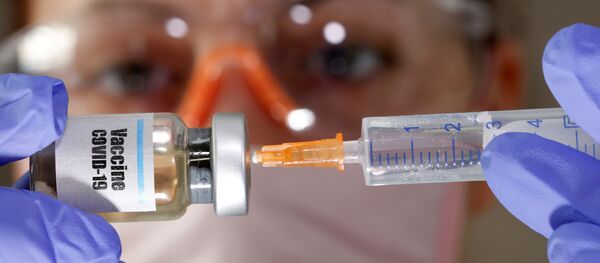Israel ranks first in the world in the number of COVID-19 vaccination doses administered per 100 people, official data suggests.
The Middle Eastern country currently ranks at 0.83 percent, and is followed by the UK and the US, with 0.74 and 0.19 percent, respectively.
This comes only days after Israel rolled out its mass vaccination programme that seems to be increasingly popular with citizens.
Myths and False Assumptions
Up until recently, however, this had not been the case. In mid-November, the Israel Democracy Institute found that only 33 percent of women and 47 percent of men were willing to get vaccinated in the first round.

The first such assumption was that the Pfizer vaccine was using a new, previously unheard-of technology.
Another issue was the allegations that pharmaceutical companies had cut corners to develop the vaccination in a record short period of time. A third one suggested that once injected, the inoculation was able to change a person's DNA, something that stirred a lot of concern among the masses, and the last one presupposed that the drug had a negative impact on female fertility.
Grossman says that the medical establishment of Israel was exerting great efforts teaching and explaining to the public that these and similar allegations were groundless.
"First of all, we explained that the vaccine was based on already0existing technology. It was nothing new, so we just adapted to the changing reality," said the expert, referring to the RNA vaccines that have been available on the market for years.
"Secondly, we explained that the process of this vaccine was indeed shorter, but that was because all efforts were thrown at it, and because companies had invested much of their money into getting the product quickly onto the market."
Thirdly, much explanatory work has been done in regards to fears that once injected, the vaccine would alter a person's DNA.
"We explained to the public that it is safe and that it vanishes rather quickly from the system. And, lastly, we showed that COVID-19 didn't lead to a spike in abortions or fertility problems and hence the vaccine couldn't do that either. Once these fears were dispersed, the main obstacle that prevented the masses from going and getting vaccinated simply disappeared."
Eager to Get a Vaccine
A recent survey suggested that 63 percent of Israelis wanted to get vaccinated, a stark spike in comparison to previous polls that projected that only a third of the population would be favouring the move.
More than 70,000 Israelis have already been injected with the first dose of the vaccine. Over 200,000 have registered to get the jab in the upcoming weeks.
Recent days have seen a significant spike in the number of new coronavirus patients, registering over 3,000 daily new cases.
In a bid to tackle the challenge, Israel's government ruled on Wednesday that it would impose a full lockdown on the country, starting Sunday.
That would be Israel's third lockdown since the start of the pandemic in mid-March and it would last for at least two weeks, with an option to extend it for an additional two.
"The vaccines will definitely end that problem [of the raging pandemic - ed.] but before we reach the level, where 70 percent of the entire population is vaccinated, we need to do what we do now, and that is maintain social distancing and wear masks. There is no other way."





